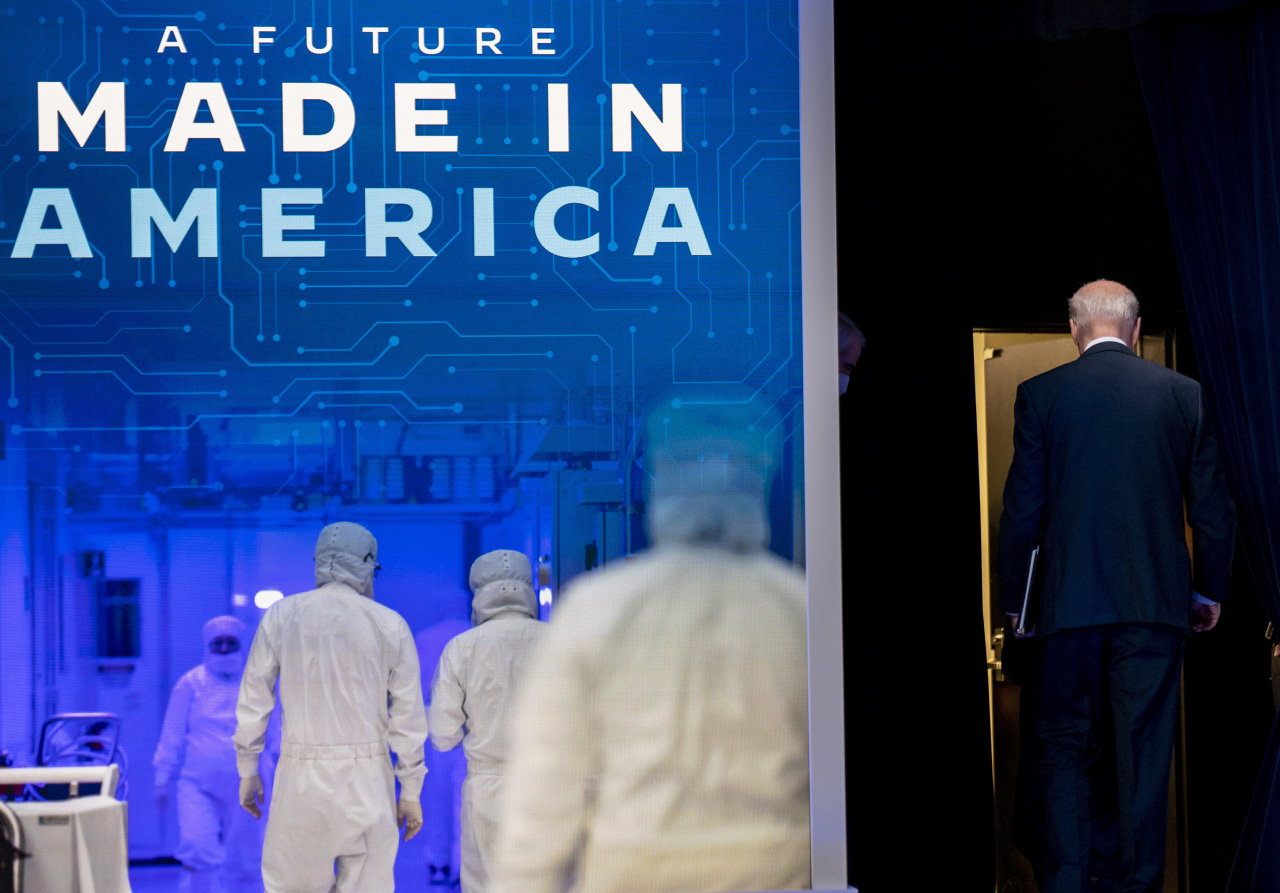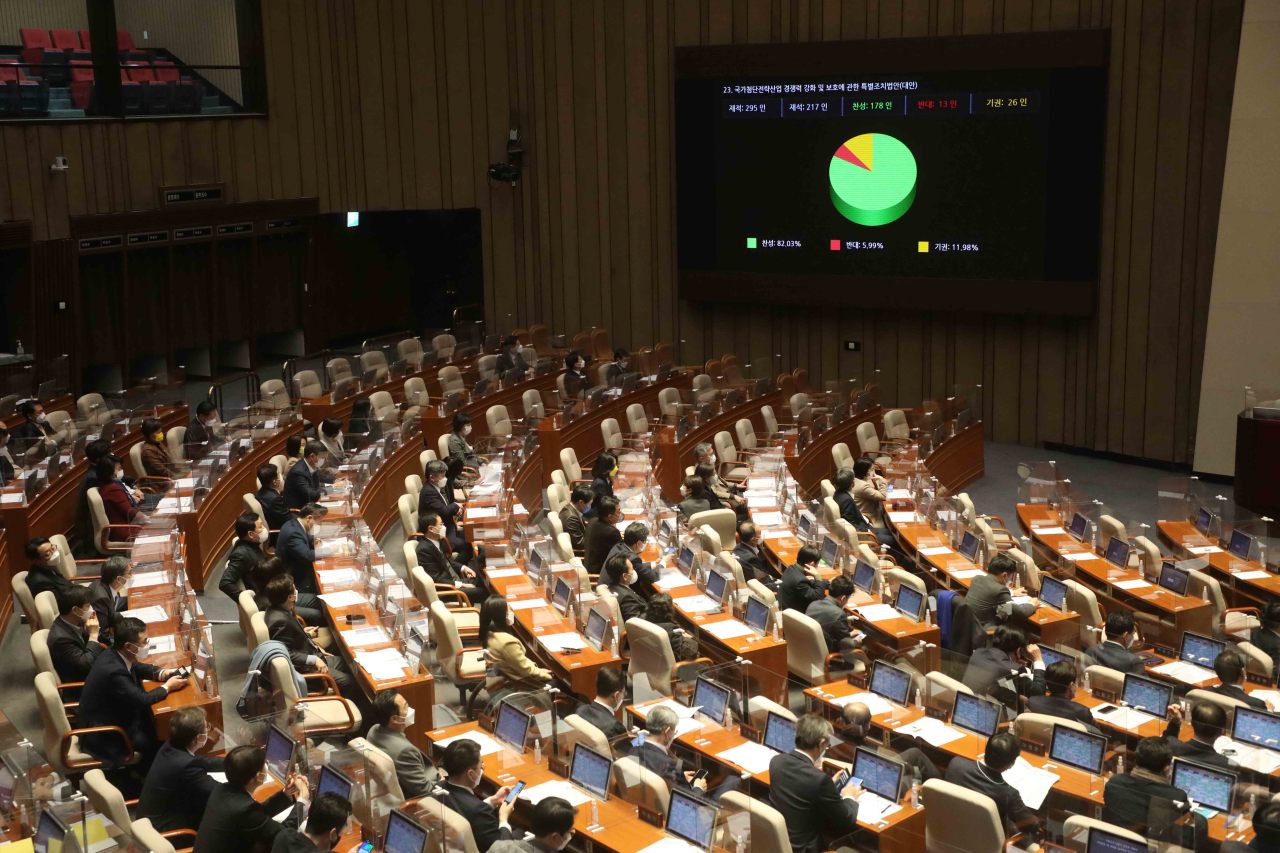![[Korea Chips Act] Korea sets out own Chips Act, in less ambitious fashion [Korea Chips Act] Korea sets out own Chips Act, in less ambitious fashion](https://res.heraldm.com/content/image/2022/01/24/20220124000698_0.jpg) |
|
A microchip circuit board with microprocessor data on a pc motherboard in the foreground (123rf) |
In the wake of the world chip scarcity, supply chain disruptions posed by the pandemic, and tensions amongst superpowers — the United States and China — governments all over the globe are scrambling to guidance and defend their respective semiconductor chip industries.
South Korea is one of the nations around the world to do so with its very own variation of the Chips Act, which handed the National Assembly on Jan. 11. The new principles are meant to present condition assist to the domestic chip field presently led by Samsung and SK.
With the new distinctive legislation, overseen by the primary minister‘s office, Korea is setting out a pangovernmental energy to limit confusion typically brought on by regulatory overlaps. In addition, the governing administration appears to be like to offer you tax incentives, an abridged feasibility research of chipmakers’ tasks, oblique expenditure in promising chip companies, as perfectly as steps to avert trade solution theft.
But the rule, even so, seems to be less enthusiastic than people of the relaxation of the globe coming underway.
The US is now awaiting a passage of a $52 billion monthly bill termed the CHIPS Act, a quick of Creating Beneficial Incentives to Deliver Semiconductors for The united states Act.
The monthly bill supports amplified federal authorities funding for exploration, which would lead to an believed growth of the US gross domestic product by $161 billion and the creation of 500,000 jobs by 2029, according to US chip industry advocacy team Semiconductor Industry Association. The projection stems from SIA’s locating that each dollar invested by the US authorities into semiconductor study has elevated all round GDP by $16.50.
The US CHIPS Act also supports up to 40 percent of investment decision tax credit rating for facility investments and invest in of chip manufacturing devices, as nicely as a federal grant program to really encourage private sector shelling out for new domestic chip generation lines.
Meanwhile, China has occur up with incentives to provide tax exemption to businesses producing operate-of-the-mill chips made with among 28 and 65-nanometer processes for the very first five many years, adopted by up to 50 {362bf5cdc35eddfb2532d3c23e83b41deb229c4410d15cb1127c60150cbd4488} in corporate tax breaks for the subsequent five many years. The $1.4 trillion chip push supports Beijing’s objective to meet 70 p.c of domestic semiconductor demands by 2025 in the experience of US sanctions, from 16 per cent in 2020.
Europe is also wanting to suggest its personal CHIPS Act in February, in hopes of quadrupling microchip output across the continent by 2030.
 |
|
President Joe Biden leaves immediately after talking about Intel’s announcement to make investments in an Ohio chip earning facility, at the South Court Auditorium in the Eisenhower Govt Business office Creating on the White Property Campus in Washington Friday. (AP-Yonhap) |
Beneath the new rule, Korea’s big businesses these types of as Samsung Electronics and SK hynix will be topic to a 6-10 per cent of a corporate tax crack for facility investment decision and 30-40 per cent of tax credit for exploration and development.
The lesser the firms are, the larger sized the degree of tax relief would be, up to 20 p.c for shelling out in services and 50 {362bf5cdc35eddfb2532d3c23e83b41deb229c4410d15cb1127c60150cbd4488} for exploration.
This is a stage up from the present-day rule, where massive businesses are suitable for just up to 2 percent tax positive aspects on their investments in memory chip designs and manufacturing systems. But the tax crack ideas are still deemed smaller in comparison to superpowers.
Balancing act instead of winner-acquire-all
What has created Korea‘s chip act look a lot less bold seems to have one thing to do with the government’s mantra in realization of equality and regional balance.
Contrary to the drafts of the monthly bill, significant companies would not be exempt from the 52-hour workweek regulation and the universities in the increased Seoul area would not be in a position to retain far more abilities into semiconductor-relevant schools. Gurus say requests from nearby industries and educational circles have been omitted or less reflected in the new regulation.
This is partly due to the overarching regulation to suppress the expansion of the increased Seoul space for balanced economic advancement across the country, stipulated underneath the Seoul Metropolitan Space Readjustment Preparing Act.
“The Chips Act could have solved the manpower shortage, experienced it permitted universities’ addition or enlargement of semiconductor-connected faculties,” said Park Jea-gun, semiconductor components professor at Hanyang College. “No clause stipulates the exemption from regulation banning growth of Seoul.”
Although the Korean Chips Act would be much less formidable than hoped, it will continue to lay the groundwork for the private sector to advance further.
“Korean semiconductor firms have faced manpower scarcity and limited use of land because their operations have been mostly located in the Seoul metropolitan spot, ironically leaving them vulnerable to regulation overlay,” Park stated.
“Things would be distinctive with the new regulation due to the fact the regulation overlay will give way to a new command tower.”
The new set of regulations has efficiently set Korea on a map of countries in a heated arms race to offer with the chokepoint in the supply chain, as semiconductor chips are turning out to be essential factors of devices, cars and trucks, house appliances and wi-fi networks infrastructure.
The time is ripe for govt shelling out and steps, as the world wide chip industry is becoming far too sophisticated to rely on private-sector financial investment for progress, professionals say.
“We are looking at a timely introduction,” mentioned Lee Jong-ho, electrical and pc engineering professor at Seoul Nationwide College.
“Countries all around the earth are beefing up governmental assistance for the semiconductor business, and we would have been lagging powering in the race if we have been not in time.”
More details about state spending really should be underway, gurus also reported.
 |
|
A see of a plenary session of the Nationwide Assembly in Seoul when Korea’s Chips Act was passed on Jan. 11. (Yonhap) |
Lee of Seoul National College claimed the law “will allow for the industry experts to start a dialogue on the foreseeable future estimate of federal government investing, looking at the binding forces of the legislation.”
“Without the regulation, (procedures to assistance the semiconductor field) have not been a precedence in condition finances organizing and were being inclined to a withdrawal.”
Korea has sought to spend 510 trillion received by 2030 to safe a provide chain in a “K-Semiconductor Belt Initiative” unveiled final 12 months, but the go lacked lawful grounds.
The Korean equal to the CHIPS for The us Act will go into result setting up July this calendar year, and the new rule handles not only semiconductors but also other reducing-edge technologies, such as batteries and state-of-the-art elements.
By Son Ji-hyoung ([email protected])
